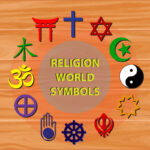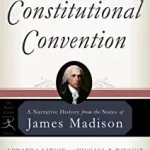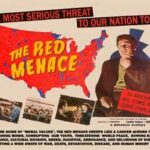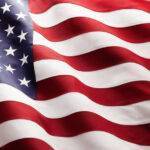“Congress shall make no law respecting an establishment of religion, or prohibiting the free exercise thereof; or abridging the freedom of speech, or of the press; or the right of the people peaceably to assemble, and to petition the Government for a redress of grievances.”
Few tenets of the US Constitution have been as widely used, or misused, as the First Amendment. To its Framers, escapees from European religious oppression, the meaning probably seemed clear enough, and Americans’ claim to “freedom” is grounded in the sentence above. But applied to actual actions, it becomes more complicated—even bewildering.
 When I was teaching at the University of Michigan, my freshmen were fascinated by an older (thirty-five-year-old) visiting Iranian student, and anxious to know more about his experiences and beliefs. In response to a question lost in time, he assured the class that if his wife committed adultery, he would be honor-bound to kill the adulterer (the man, that is). The students stared speechless. “But . . . you can’t!” one muttered, finally. “That’s murder!” another objected. “No, no,” he assured them, “My religion demands it—my honor.” Confused, the students fell silent. I pointed out to him that he would be tried for murder. He shrugged, uninterested. “Allah’s is a higher law.”
When I was teaching at the University of Michigan, my freshmen were fascinated by an older (thirty-five-year-old) visiting Iranian student, and anxious to know more about his experiences and beliefs. In response to a question lost in time, he assured the class that if his wife committed adultery, he would be honor-bound to kill the adulterer (the man, that is). The students stared speechless. “But . . . you can’t!” one muttered, finally. “That’s murder!” another objected. “No, no,” he assured them, “My religion demands it—my honor.” Confused, the students fell silent. I pointed out to him that he would be tried for murder. He shrugged, uninterested. “Allah’s is a higher law.”
But the First Amendment promises “free exercise” of religion, doesn’t it? No, I would insist, only if it doesn’t violate another’s rights. Equal rights are the central binding principle. “You’re rights end at the other fellow’s nose.” And what if that “other” also believes in “Allah’s law?” Conflict between the laws of God and man isn’t new. When John Kennedy was running for President, the question of whether he would obey the Constitution or the Pope was a major issue. The struggle over abortion has brought the same issue to the foreground again. Many Catholic priests warned their congregations that because of their support for Roe Versus Wade, voting for either Obama or Hillary Clinton was grounds for excommunication. Separation of church and state is an invaluable principle for most of us, but it isn’t much help to the individual who owes allegiance to both systems.
The First Amendment also promises a free press. Does that include the right to publish lies? Is it a lie if the publisher believes it? The Founders were no strangers to gossip sheets and “yellow press.” In my youth, radio gave fundamentalist preachers like Reverend Coughlin much larger sphere of influence, which was, of course magnified again by television. But we have yet to cope with the power of the Internet, where power comes with the keyboard and is unaccountable to any code of ethics.
The First Amendment protects diversity of differing moral codes But it’s hard to see how we can hold together as a nation if we are not bound by some shared civil code at the core. Equal rights, the requirement to treat others with the respect you wish to receive seems the most central bond, as is the principle that no one is exempt. Permission to violate that code would destroy our civil order. Yet polarization has brought us to the point where half of the country is enslaved to a man who daily endangers the lives of his opponents and claims exemption from that central code. As we watch the courts try to restrain him, we also need to use the vote to tell his followers that “belief” doesn’t give them freedom to destroy the order or declare war on their fellow citizens.
nation if we are not bound by some shared civil code at the core. Equal rights, the requirement to treat others with the respect you wish to receive seems the most central bond, as is the principle that no one is exempt. Permission to violate that code would destroy our civil order. Yet polarization has brought us to the point where half of the country is enslaved to a man who daily endangers the lives of his opponents and claims exemption from that central code. As we watch the courts try to restrain him, we also need to use the vote to tell his followers that “belief” doesn’t give them freedom to destroy the order or declare war on their fellow citizens.
We cannot sit this election out, despite lack of enthusiasm for the candidates; let us come together at the polls to reaffirm the primacy of that core belief—freedom bound by mutual respect for one another.




Well said, Judy.
Outstanding. Well done, Judy!
For those who are as bewildered as I am that the evangelicals appear to support the morally bankrupt Trump, a recent book helps to explain this disconnection. It’s called “the kingdom, the power, and the glory,” by Tim Albert.